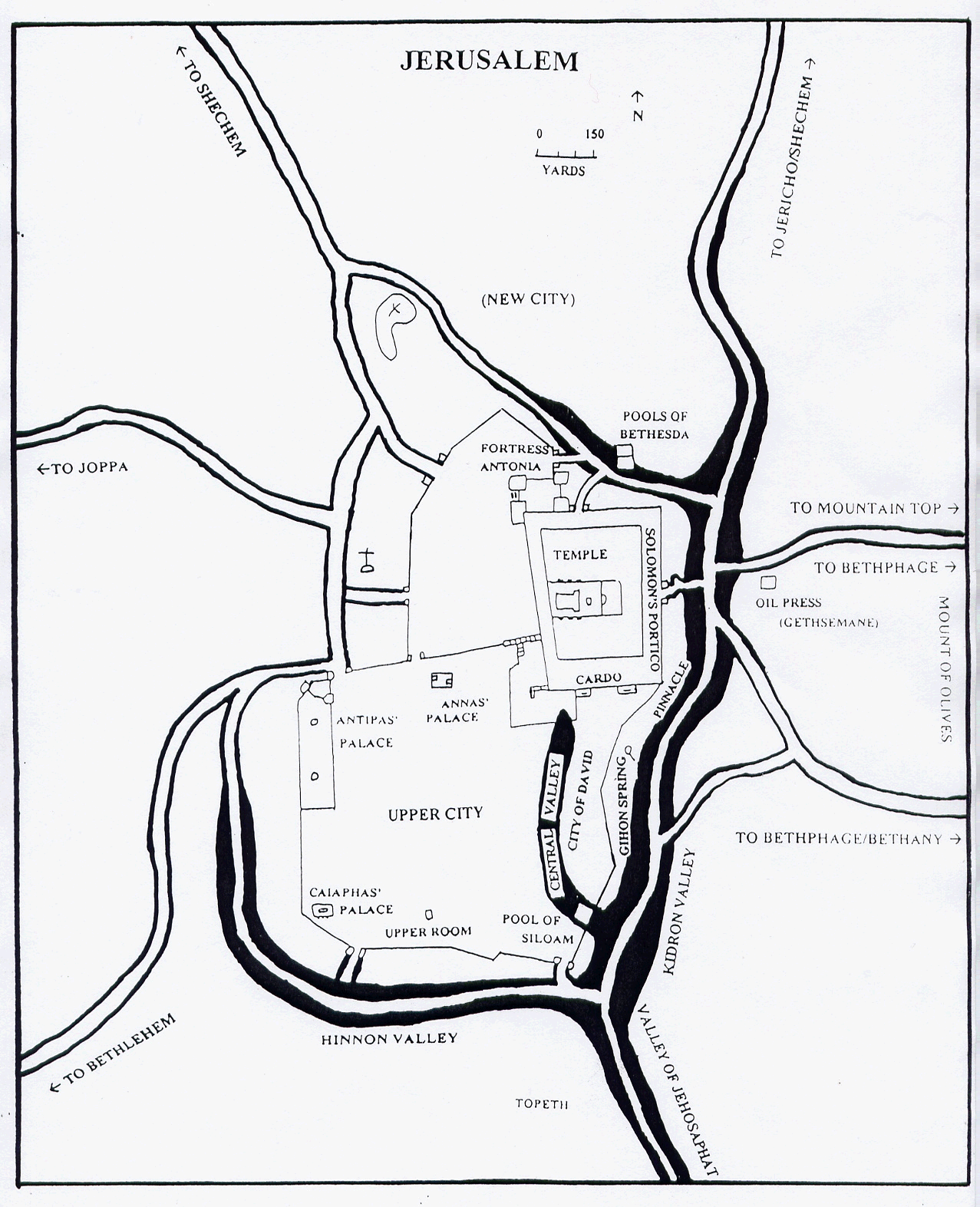92 – The Christ Appears for Thomas
Where: Upper room, Upper city, Jerusalem, Judea
Scripture:
Notes:
Listen to audio
The Apostles and disciples that remained in Jerusalem, gathered, whenever possible, in the upper room. They made the home of Mark their unofficial meeting place. The religious leaders did not seem to be out to arrest other followers. So often, during the week following the resurrection, the followers gathered for a meal together.
During the week in Jerusalem those who were gathered began to feel more confident. They began to appear in public. They went to the temple more and more often and began to speak, to some that they met, about The Messiah. But they were still nervous, both about the authorities and about the message. Yet, when they gathered for meal in the evenings, they discussed their attempts to proclaim the good news, and found support and guidance from their spiritual family.
Yet, since the death of Jesus, Thomas had been off by himself, considering what had happened. He had believed that Jesus was the Messiah, and had been willing to back that belief by offering to die in battle with Jesus when the other disciples had counseled caution. He was hard to convince, but was just as hard to dissuade.
Thomas had taken Jesus’ death personally. Thomas now believed that Jesus had betrayed his trust. Thomas believed that Jesus had been wrong (either a liar or misguided). Jesus’ death had made a fool out of Thomas. ‘Never again will I allow myself to be deceived by a false prophet’, thought Thomas.
Meanwhile the Apostles and disciples that had gathered in Bethany also followed the Lord’s command. They packed up and got on the road back to Galilee. They left on Monday morning, traveling up the Jordan valley to Capernaum.
By Friday night, as the Sabbath began, the Apostles and disciples who had been at Bethany and were on their way back to Galilee, had arrived in the vicinity of Salim and Aenon. They set up a camp for Friday night and Saturday day [to observe the Sabbath], rested Saturday night, and then resumed their journey on Sunday morning.
In Jerusalem, on Sunday evening, Thomas went to the Jerusalem gathering to apologize for his own poor judgment and to help the others see that it was time to “get on with their lives”.
But as he entered the room full of excited Apostles, he was surprised. When he had left them last week, they were scared, confused, and discouraged. Now the Apostles gathered around Thomas and told him about how The Christ had appeared to them alive.
But Thomas was in no mood to be swept away by any “unproven belief” or to be guided by emotion. ‘I will not be led down that path again without absolute proof. Let ME see, and touch, the wounds and I will reconsider’, said Thomas. Thomas wanted to believe, but would not move forward blindly.
The door was shut when The Christ appeared again. Many recognized The Christ and greeted their Lord. But Thomas remained sitting, and watching. And when The Christ walked directly to Thomas and stood in front of him, the room fell silent.
‘Thomas’, said the Christ, ‘you wanted proof!? Look at my hands’, said Jesus, extending his hands. ‘Look at my feet’, pointing down. ‘Look at my side’, as he pulled up his tunic. ‘Go ahead and touch them if you need further proof. Do not convince yourself to disbelieve. Have faith, or proof, if that is what you need’.
Thomas looked at The Christ and his throat tightened. Tears welled up in his eyes. ‘I do not need further proof’, Thomas thought, ‘this is The Messiah’. ‘My Lord’, he managed to say as he tried to focus his eyes. Then his eyes closed and his head nodded forward. ‘My God’, he said quietly.
‘Thomas’, said The Christ, ‘welcome back. Blessed will be those who believe without needing proof.’
DAB
Question: I notice that, in sections 92, 94, 95, and 96 on the website, you use the term “The Christ” instead of “Jesus.” Is there some significance to this?
Asked by: Reader
Yes. In my opinion, Jesus refers to the man from Nazareth. The Christ refers to the annointed of God (the Messiah). They are not identical despite the modern tendency to make them out to be the same. DAB

